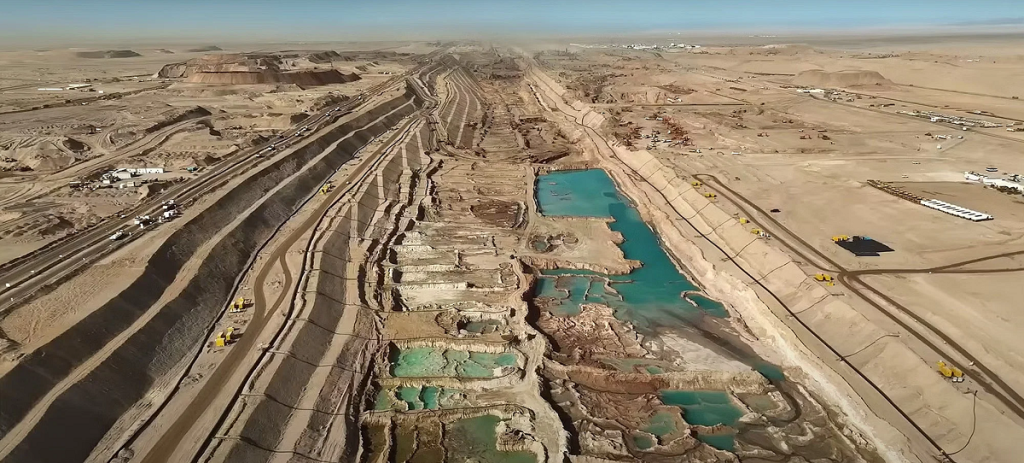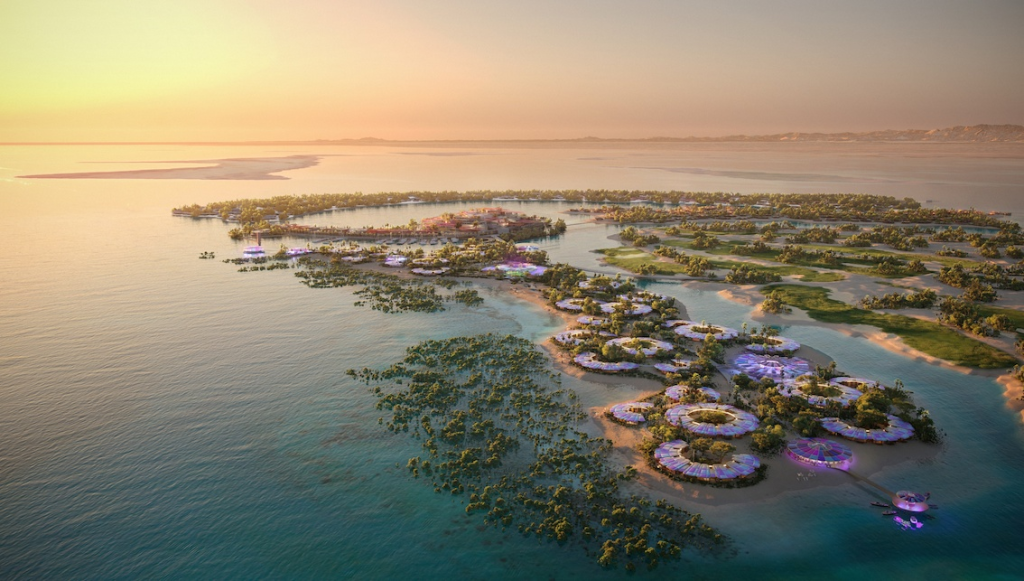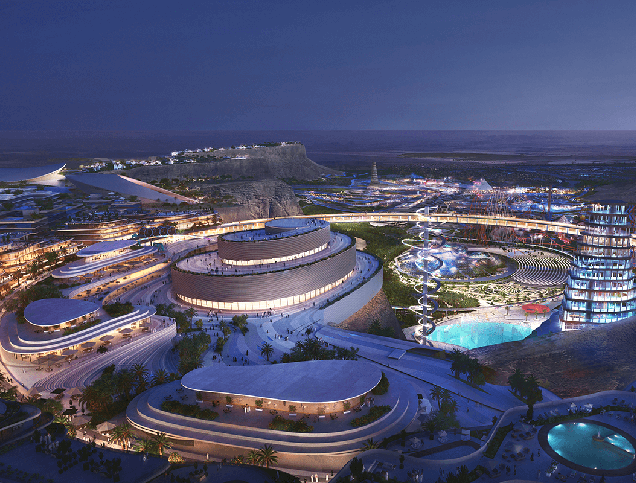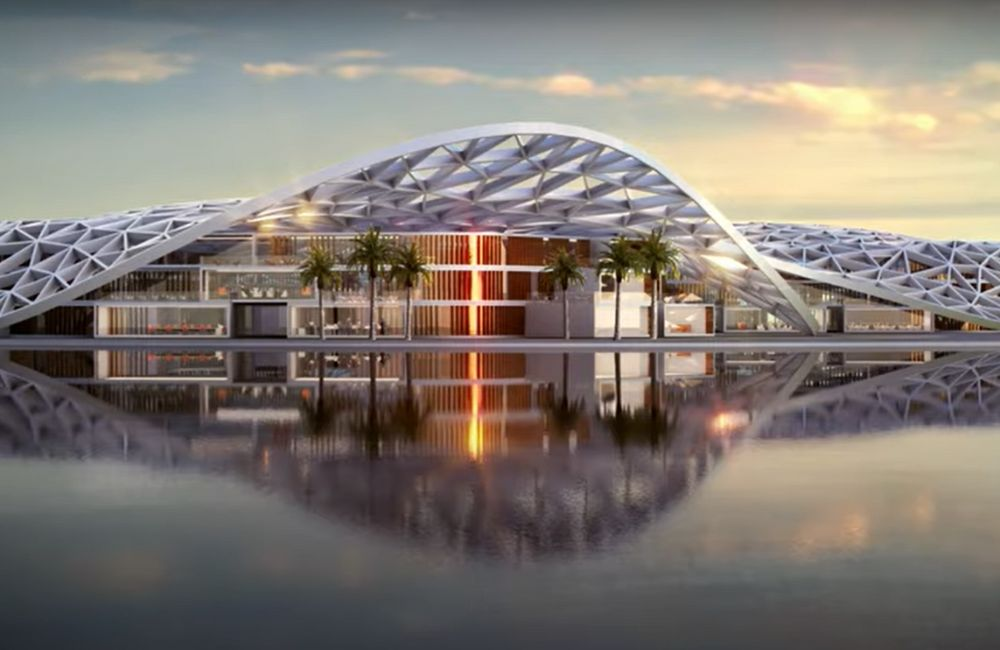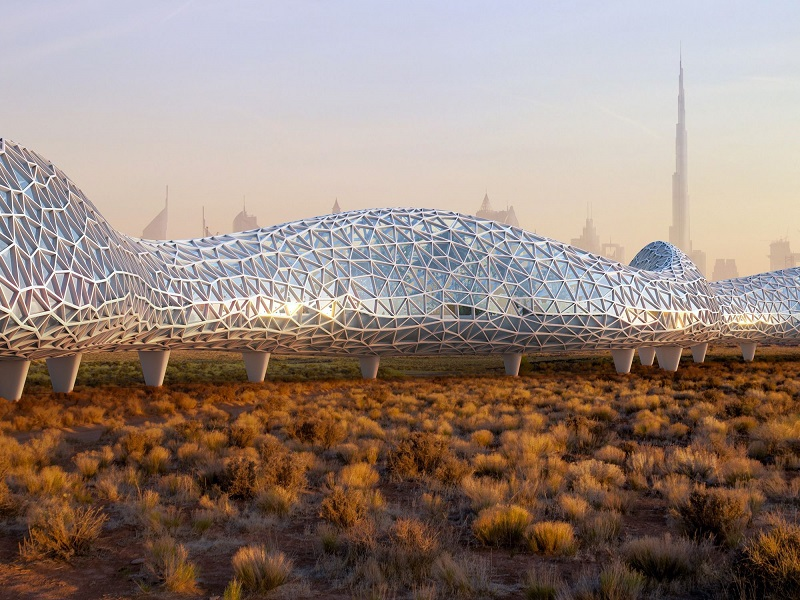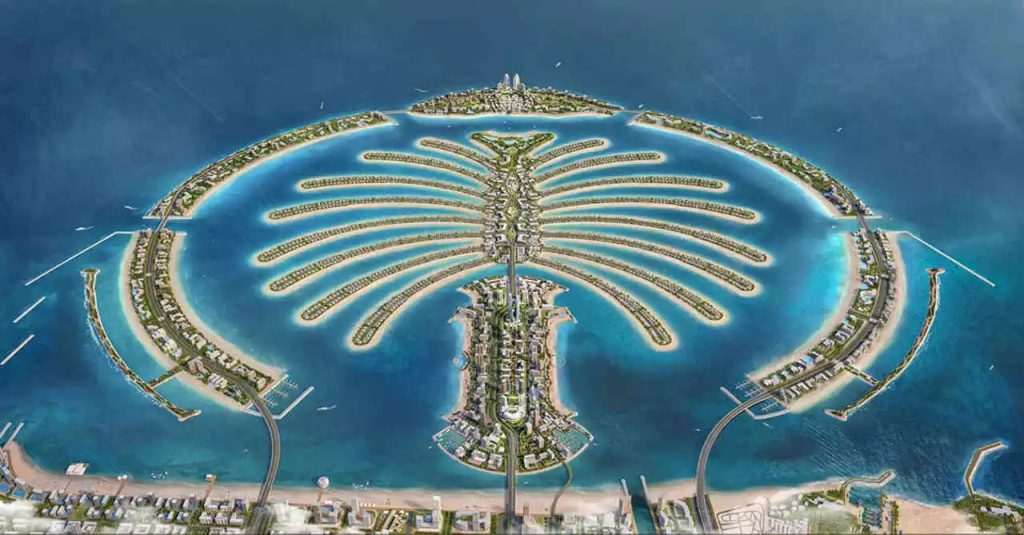The Middle East is undergoing a major transformation in 2025, driven by visionary mega-projects that are reshaping urban planning, infrastructure, and economic diversification.
Countries such as Saudi Arabia, the United Arab Emirates (UAE), Iraq, and Jordan are at the forefront, delivering multibillion-dollar developments that redefine architecture, sustainability, and technology integration.
Saudi Arabia: Leading the Construction Boom under Vision 2030
Saudi Arabia continues to dominate the region’s construction sector with giga-projects under its Vision 2030 strategy. These initiatives aim to diversify the economy away from oil, boost tourism, and create smart, sustainable cities.
NEOM – The Future of Urban Living
Valued at over $500 billion and covering 26,500 km², NEOM is one of the world’s most ambitious developments. Sub-projects like The Line, Oxagon, Trojena, and Sindalah aim to transform urban design. In 2025, work is advancing on major infrastructure for The Line — a car-free city powered entirely by renewable energy — and Oxagon, the world’s largest floating industrial complex.
Spot emerging trends and adapt fast
Monitor cash flows, project P&L, and KPIs
Request a demo
The Red Sea Project
Covering 28,000 km² of coastline, The Red Sea Project combines sustainable resorts with untouched natural beauty. Phase one, which begins in 2025, will feature eco-friendly hotels, floating villas, and renewable energy infrastructure. The project aims to attract one million tourists annually by 2030.
Qiddiya Entertainment City
Near Riyadh, Qiddiya is set to become a global center for entertainment and culture, with theme parks, motorsport arenas, and sports complexes. Several attractions are scheduled to open in late 2025.
Build with financial confidence, using cash flow analysis in FirstBit
Request a demo
Other Landmark Projects
- King Salman Park.16 km² of urban green space with gardens, museums, and cultural venues.
- Diriyah Gate. The heritage district is transforming Riyadh into a cultural destination.
- Jeddah Tower. Construction has resumed to build the first skyscraper exceeding 1 km in height.
- King Salman International Airport. Expansion to handle 185 million passengers annually.
- Saudi Landbridge Railway. Freight link between Jeddah and Riyadh to improve logistics.
The United Arab Emirates: Pushing Boundaries in Innovation and Sustainability
The UAE continues to deliver groundbreaking infrastructure and futuristic developments in 2025, setting new benchmarks in technology and sustainable construction.
Stay one step ahead of competitors
Monitor the UAE market dynamics and adapt fast
Request a demo
Dubai Urban Tech District
A dedicated hub for AI, robotics, and sustainable technologies, designed to host over 500 startups and create thousands of high-skilled jobs.
The Loop
The Loop project is a 93 km climate-controlled urban corridor promoting cycling and walking while cutting car usage., It aligns with Dubai’s carbon reduction goals.
Deliver work that exceeds the client’s expectations
Request a demo
Revitalization of Palm Jebel Ali
Palm Jebel Ali is an expanded luxury waterfront development with residences, commercial areas, and entertainment hubs. It will double the size of Palm Jumeirah.
Other UAE Mega Projects
- Etihad Rail. High-speed rail between Abu Dhabi and Dubai.
- BEEAH Waste-to-Hydrogen Plant. The first in the region to convert municipal waste to clean hydrogen.
- Guggenheim Abu Dhabi. Opening in 2025, it will be the world’s largest Guggenheim museum.
Spot emerging trends and adapt fast
Monitor cash flows, project P&L, and KPIs
Request a demo
Iraq and Jordan: Driving Infrastructure for Future Growth
While Gulf nations lead in luxury projects, Iraq and Jordan are focusing on infrastructure critical to long-term economic and social development.
Grand Faw Port, Iraq
Located in Basra, it’s set to become the Middle East’s largest seaport. Ongoing 2025 expansions include deepwater channels and modern container terminals.
Build with financial confidence, using cash flow analysis in FirstBit
Request a demo
Aqaba–Amman Water Desalination Project, Jordan
Launching in 2025, this initiative will provide 300 million cubic meters of water annually through advanced desalination and a 300 km pipeline network, addressing water scarcity for millions.
Key Trends Shaping the 2025 Construction Sector
From futuristic smart cities to sustainable tourism hubs, these developments share common drivers that are reshaping how the region builds, connects, and grows. Here are the most popular trends in the landmark projects of 2025:
- AI and digital technologies — advanced BIM, AI-driven planning, and smart sensors in projects like NEOM and Urban Tech District.
- Modular and prefabricated construction — faster build times and reduced waste.
- Sustainability and green energy — solar, hydrogen, and zero-emission designs at the core of new developments.
- Economic diversification — shift from oil to construction, tourism, entertainment, and knowledge industries.
From Saudi Arabia’s giga-projects to the UAE’s innovation-driven hubs and Iraq’s port expansion, 2025 is redefining the Middle East’s construction landscape. For contractors, this momentum means unprecedented demand for advanced building methods, skilled labor, and tech-enabled project management.
For investors, it signals a fertile environment for long-term returns in infrastructure, real estate, and tourism — supported by government commitment and strong regional growth strategies. As technology, sustainability, and strategic planning continue to align, the region is cementing its role as a global epicenter for next-generation urban development.
Stay one step ahead of competitors
Monitor the UAE market dynamics and adapt fast
Request a demo

Anna Fischer
Construction Content Writer

See FirstBit ERP solutions in action
Discover how our system solves the unique challenges of contractors in a personalized demo.
After the demo you will get a quotation for your company.
After the demo you will get a quotation for your company.





